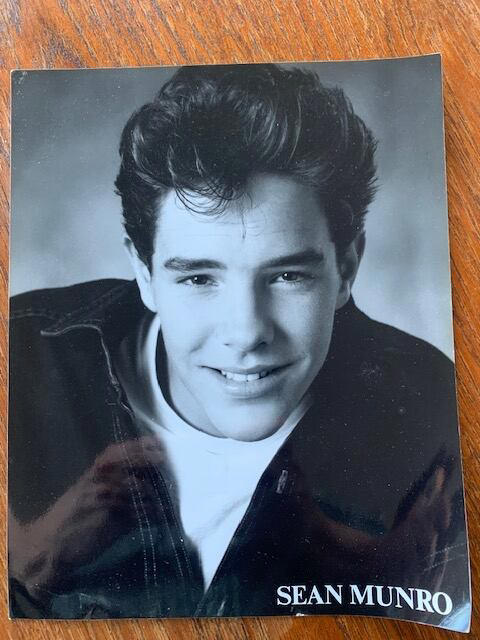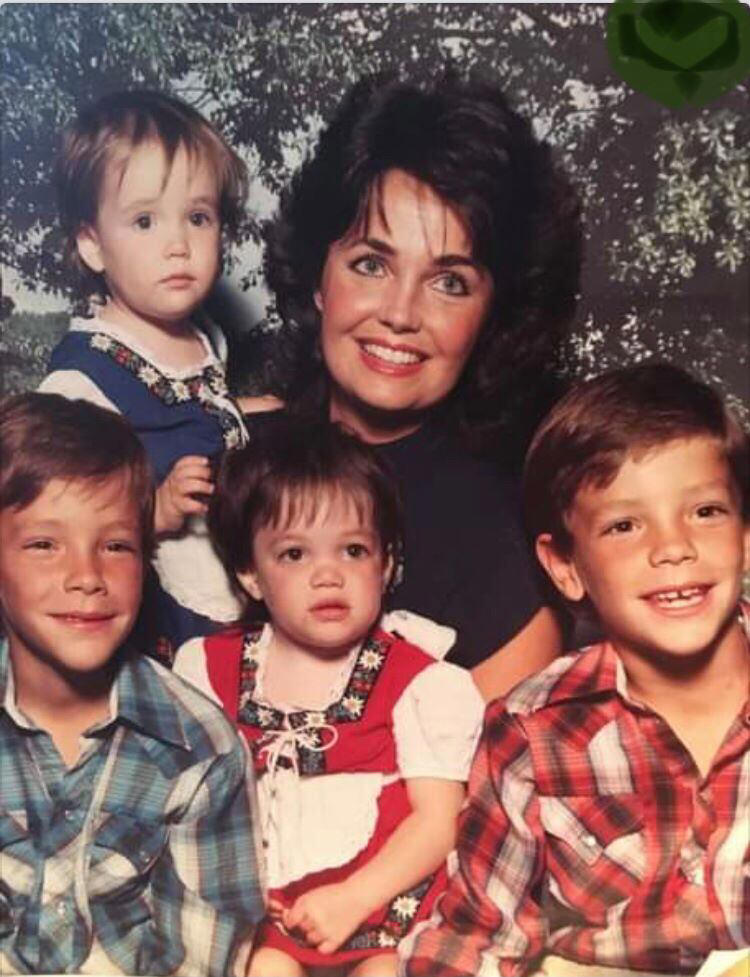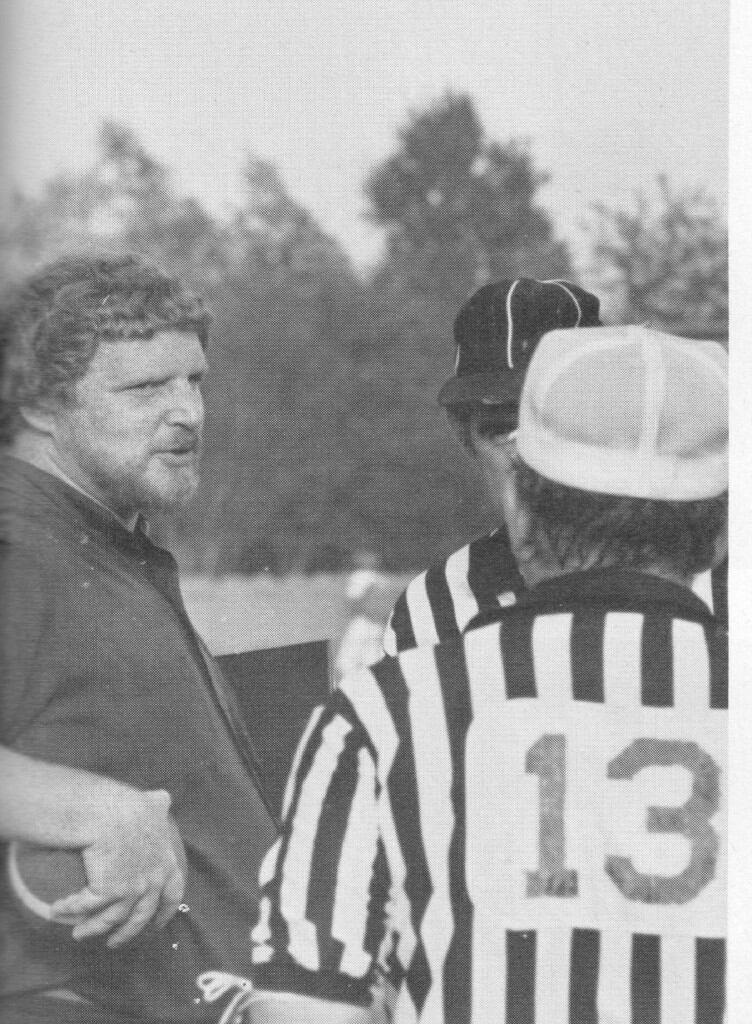Family says Christian Brothers abuse led to death of loved one in Vancouver's Downtown Eastside
It's been one year since Paddy Munro held her son as he shivered, emaciated, in a hospital waiting room. A full year since he slipped out of the observation room and back to a dilapidated hotel on Vancouver's Downtown Eastside. One year since the worst day of her life — when she got a phone call saying her son was dead.
Sean Munro fought to vanquish his intrusive thoughts for more than 20 years, his family says. He struggled with obsessive-compulsive disorder, body dysmorphia, alcoholism and more. At the root of it all, his mother says, was what happened in a small office at a Vancouver private school in the 1980s — with a teacher who they believe never should have been there.
"I want to go back and I want to do more," Paddy says. "I wish I could have done more."
Sean Munro went to Vancouver College in Grade 8. It was a long bus ride, about an hour each way, but he passed the time with his twin brother, Aaron. The men in their family were Vancouver College alumni, Irish Catholic to the core, and their parents felt it was the best move for their education.
Sean and Aaron had been inseparable up to that point, indistinguishable even to their own aunts. Grade 8 was the first time they'd been split apart and put in different homeroom classes. Their mother was happy about the chance for them to grow individually, to meet new people and have new experiences.
About a month into the school year, however, Sean stopped coming home on time.
"We found out that Sean had detentions," Paddy says. "He was with Joe Burke."
Joseph Burke, pictured here on a football field at St. Thomas More Collegiate in Burnaby, B.C., was a former Christian Brother stationed at Mount Cashel Orphanage in St. John's. (TheInquiry.ca)© Provided by cbc.ca
Burke was, by all accounts, a towering figure at Vancouver College. A burly man with red, curly hair, he was a former star of the school football team. He joined the ranks of the Christian Brothers after graduation and returned as a teacher in the early 1980s.
The Christian Brothers weren't ordained as priests, but they wore collars and robes, and took an oath of celibacy. They ran schools and orphanages around the world, and often left a trail of broken boys, wounded faith and court cases in their wake
Vancouver was no different. More than 60 men are now part of a class-action lawsuit alleging they were abused at Vancouver College and nearby St. Thomas More Collegiate by six Christian Brothers between 1975 and 2009.
All six men were transferred to Vancouver from the Mount Cashel Orphanage in St. John's — a place that later became synonymous with institutional child abuse.
Burke is one of those six. CBC News has tried to contact Burke by email and letter. He has not responded. The schools have not denied abuse happened, and have said they want the allegations to be "investigated and resolved."
Family helped in Burke's defence
The Munro family had no inclination anything was going on. Their first clue came two years after the boys graduated, when Vancouver College sent letters to alumni letting them know Burke was facing criminal charges in Newfoundland related to his time at Mount Cashel. The school was asking former students and parents to support Burke in his defence.
Paddy and her husband, John, separately questioned Sean about his detentions with Burke.
"Sean denied and denied," she says. "[He said] nothing ever happened to him."
After their inquiries came up empty, the Munro family made a decision that still bothers them to this day. They chose to support Burke, Paddy says, donating air travel points to help him fly back and forth to Newfoundland for his trial.
"Looking back on it, it's just awful," Paddy says with a sigh.
In 1991, Burke was convicted on three counts of indecent assault and one count of assault causing bodily harm for his conduct at the Mount Cashel Orphanage in St. John's. His convictions were upheld by the Newfoundland and Labrador Court of Appeals, before most of the charges were overturned by the Supreme Court of Canada. In the end, he was given a conditional discharge for one count of assault causing bodily harm.
"It would obviously be in the public interest for a person of his calibre to return to the teaching profession," wrote James Gushue, Newfoundland and Labrador's former chief justice, in his sentencing decision.
Burke returned to Vancouver with no criminal record and continued teaching.
"There was a lot of support because Vancouver College was pushing it," Paddy says. "It didn't dawn on us, this coming home late, because Sean said everything was fine. There was nothing. It was no big issue."

Munro's medical file shows he began to develop obsessive-compulsive disorder in Grade 8 and displayed symptoms of body dysmorphia by Grade 10.
Around the same time, Sean's life took a sharp turn. He was drinking heavily, and it was interfering with his ability to hold down a job. His behaviour went from concerning to shocking in short order.
"One morning we woke up and we looked in the backyard and there was a noose there," Paddy says. "That was Sean's cry for help."
Aaron Munro remembers feeling a divide growing between him and his brother after they finished high school.
"Up until that point, Sean and I were extremely close, but always very similar with ambitions, goals and things. But that all went away," Aaron says. "It's all a product of what happened in Grade 8."
Aaron went on to become a real estate agent, while Sean delved deeper into addiction. His drinking was complicated by diabetes, and his body dysmorphia took over. At one point he stood six feet tall and weighed 130 pounds.
Over his last 23 years, Sean Munro went to treatment facilities 20 times. CBC News has reviewed his medical records — thousands of pages of written notes from psychiatrists and psychologists outlining each of his attempts to get better. While the notes show he tackled his substance abuse head on, there are several references to childhood trauma, about which Sean refused to go into detail.
"He reports that he has been ingesting alcohol to assist with underlying mental health struggles," one note reads. "Particularly ongoing ruminative thoughts of previous tried experiences dating back to his childhood. He reports that he was raised in a 'Roman Catholic school' and did not go into further detail but reports that he was exposed to traumatic events."
"His OCD started in Grade 8," another note reads. "He has had anorexia and bulimia due to his body dysmorphia. He estimates he has been hospitalized psychiatrically under 10 times for suicidal threats."
"Patient states he is now ready to address his trauma which he was not in the past," reads one of the latest reports, from July 5, 2021.
A shocking admission
Paddy Munro says her son carried his secret until about four years ago. She was driving him to rehab when he asked her to pull over, she says.
"He said, 'Mom, when I was in school, Joe pulled my pants down and he was spanking me bare.' And then he stopped. And I said, 'Sean, you can tell me. I'm your mom, I can hear this.' And he said, 'No, that's all.'"
He also opened up to his sister, Terri, while he was detoxing at her house last year, she said. According to her, he told her Burke stripped him from the waist down and beat him with his bare hands.
CBC News has interviewed two other men — one a former Mount Cashel resident, the other a former Vancouver College student — who both told similar accounts of being bare-bottom spanked by Burke. The Vancouver College student, Colin Wilson, said he was kept after school for detentions and repeatedly spanked while naked over the course of his Grade 9 year. Both men said the alleged abuse left a lifelong impact.
Burke's lone conviction from Mount Cashel was for beating a child on the bare buttocks so hard he couldn't sit for days.
Sean Munro's family says his suffering was unending but he had a Herculean will to get better. He'd get out of a treatment centre with goals and promises, before relapsing within a few weeks. His alcoholism and mental health issues often brought him to the homeless hotels and streets of Vancouver, where his family would find him and convince him to go back to treatment again.
"He resolved to drinking hand sanitizer and poison because he couldn't be with his thoughts," Terri says. "This whole journey here, 20 years of chasing my brother around Vancouver to try and bring him back to life… it's him trying to escape this pattern of not being good enough."
His last day
It came to a head last October. Sean was out of contact for two weeks, staying at a single-room occupancy hotel on the Downtown Eastside. He'd spent nine months waiting for a room in a treatment centre, with his addiction and diabetes worsening by the day. On Oct. 16, 2022, his twin brother found him on the street.
Aaron barely recognized his identical twin looking back at him. He bought him a sandwich and bought his mother some time to get there and intervene. She came to his room to find blood smeared on the dirty walls and a shell of her son sitting on the bed.
"I had to lean down and put my hands on his shoulders and say, 'Sean, it's your mom. It's your mom here.' He was just looking through me. He wasn't recognizing me."
Paddy convinced her son to go to the hospital. Sitting in the front seat of the car, Sean turned to her partner in the back seat and thanked him for being there for his mother.
"He always had the grace and the love to say something like that," Paddy sobs.

She sat with her son in the waiting room. He told the triage nurse he was suicidal and planned to jump off a bridge if they didn't keep him there. Paddy still regrets leaving when she thought he was being admitted to the hospital. Within 30 minutes, she got a call from the hotel where Sean was staying, letting her know he'd come back.
Paddy spent the night calling every agency she knew that could intervene and help Sean get immediate treatment. Nobody came through, she says.
Sean was found dead in the morning, a month shy of his 47th birthday. His family says he died of complications from alcohol consumption and diabetes.
"He always wanted help," Paddy says. "He never wanted to leave us. He wanted to be with us."
Family doesn't get to join lawsuit
Sean Munro didn't leave a will. He didn't have an estate. That means he doesn't get to partake in the class-action lawsuit against Vancouver College, which has been winding its way through British Columbia's Supreme Court since 2021. His family, however, fully support the men who have stepped forward with claims against their alma mater and former teachers.
Vancouver College declined an interview request but has indicated it would like to settle the case through mediation, rather than endure a trial that would likely take years to reach a resolution.
Joe Fiorante, a lawyer for the students, says that process would have to involve the school telling the truth about what it knew of the alleged abuse. Did the administrators know those six teachers had abused boys at Mount Cashel before coming to Vancouver? Did they welcome them anyway?
"All it's done is take me further away from my church," Paddy says. "I believe in God but I feel hate every time the Catholic church comes up."
The Munro family wants to see accountability in whatever form it may take. One year later, their grief is still as present as their love for Sean. His siblings say the anger is, too.
"Every time I think of him, it's there," Aaron says.
"He's lost. He's just lost," Terri adds. "And wanting to get better, and struggling and losing, and not knowing how [to change], and saying, 'Sorry I can't get better.'"
His mother does her best to see past the anger and guilt, and to remember her son for his shining qualities.
"When I look at Sean, I don't think of Joe Burke," she says. "I just see a soul, and a beautiful young son who wanted help and always wanted to do better."
Support is available for anyone who has been sexually assaulted. You can access crisis lines and local support services through this Government of Canada website or the Ending Violence Association of Canada database. If you're in immediate danger or fear for your safety or that of others around you, please call 911.

No comments:
Post a Comment